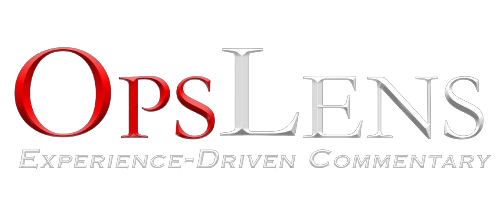The Red Hot Chili Peppers are one of the top-selling bands of all time. Formed in the early 80s, the Los Angeles-based outfit has won six Grammy Awards, was inducted into the Rock and Roll Hall of Fame in 2012, and is still producing records today.
Perhaps their most recognizable song is the 1999 hit “Californication,” which showcases the band’s unique fusion of alternative rock, funk, and psychedelic rock. And while I can’t endorse all of what the band has done throughout their career, this song’s lyrics are more introspective than those of most of their music.
As suggested by the neologism in the song title, “Californication” is an irreverent and disturbing ode to the decay of modern society. Doubtless, there are many who have heard the song but not listened to its lyrics. For anyone who tunes in, however, “Californication” makes a sobering decree:
It’s the edge of the world and all of Western Civilization
The sun may rise in the East, at least it settled in a final location
It’s understood that Hollywood sells Californication
…
And tidal waves couldn’t save the world from Californication
Californication is best appreciated in tandem with its music video, which has collected a whopping nearly 1.14 billion YouTube views. Though clunky-looking by today’s standards, the music video was very innovative for its time.
In it, the four members of the band—Anthony Kiedis, Flea, John Frusciante, and Chad Smith—are reduced to computer game avatars searching for pleasure, conquest, and success in a pretend world.
In the video’s closing scenes, the pixelated cityscape around them begins to collapse, and the band members dodge falling skyscrapers and crashing cars. Each of them narrowly escapes calamity as cracks in the asphalt streets open wide to swallow them. Landing safely inside the earth, they morph back into themselves (though still animated versions of themselves) while the words “Game Over” flash on the screen below. As the video ends, the band celebrates their survival—though they are now trapped underground in a dark, infernal cave.
What is the story being told here?
To understand Californication, my recent exposition of Francis Schaeffer’s ideas will come in handy. If you’re short on time, here’s a brief summary: Francis Schaeffer (1912–1984) was an American pastor, philosopher, and evangelist. He gave words to the existential dilemma of modern Westerners through the metaphor of a two-story house that illustrates the divide between the sacred and secular.
According to Schaeffer, as philosophers like Hegel and Kierkegaard challenged traditional logic, they introduced an artificial division between faith and reason. In other words, Westerners have come to see rationality and spirituality as incompatible, resulting in a fragmented worldview. This present-day chasm is so fixed that it can no longer be breached, save by imaginary “leaps of faith” that people take in a desperate search for meaning.
More than a topic of intellectual curiosity, Schaeffer argued that this split worldview—which he called the “dichotomy”—is the reason so many modern people experience angst and despair of a kind unknown to people of past generations. By splitting faith and reason, we’ve abandoned our pursuit of higher meaning. Now, significance is restricted to the tangible, empirical world: what we can taste, touch, and experiment.
What does all this have to do with the Red Hot Chili Peppers?
Intended or otherwise, “Californication”—particularly through its music video—is a candid, Schaeffer-esque confession about the emptiness felt by so many in modern times.
In our post-Christian search for meaning, even the best beliefs we can construct are illusory and unstable. The end result is that we are no better off: We are still trapped without any ultimate purpose.
The Red Hot Chili Peppers had first-hand experience of this. Eleven years before they released this song, the band lost their founding guitarist Hillel Slovak to suicide. He was just 26 years of age.
In both their music and their lived experience, the Red Hot Chilli Peppers remind us that when we forget that we are created in the image of God, our leaps for meaning will always reduce humans to something less than we they are. And this erodes civilization.
How can we recover ourselves and our civilization?
By returning to the simple truth that we have been created as both rational and spiritual beings. In truth, there is no contradiction between faith and reason. All truth is for all of life. When our worldview is founded on eternal truths, there is no dichotomy, and no need for despairing leaps of faith.
To borrow a phrase from the Peppers, don’t let modern lies steal your mind’s elation.
—
Image credit: Pixabay
